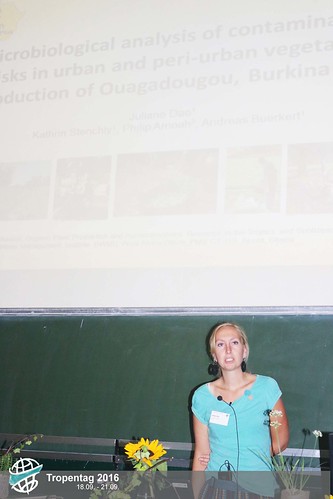Climate Change and Our Beloved Fruit Trees
A concerning fact that stood out during the presentation on lettuce contamination in Burkina Faso along the value chain was that 70% of the water being assessed in the study was above the safety or “health based target” threshold as set out by the World Health Organization. This water is being used to irrigate crops in urban and peri-urban locations, and is often derived from sewage contaminated sources.
Lettuce is an important crop in this area as it is considered “exotic” and has high value, especially during wedding season and other important occasions. Conserving its hygiene along the value chain is critical in preventing the food-borne illnesses that are all too frequent when using coliform-polluted water as an irrigation source.
The study showed that, regardless of irrigation water source, the number of coliforms on fresh lettuce increased along the market chain, making it critical to inform households of the importance of thoroughly washing their fresh produce. Post-harvest handling remains an integral step in protecting end users against food-borne illness.
Another interesting presentation covered the potential effects of climate change on fruit and nut trees which require a cooling period before breaking dormancy in the spring. Fruit trees in vulnerable areas (such as the Mediterranean growing regions) could be subjected to physiological disorders, poor fruit yield and quality, and long term orchard damage. The presenter urged scientists to pursue research topics in the area of fruit and nut trees to preserve their place in a world affected by climate change.







Comments
Post new comment